Full Circle Equine Service Equine Article Archives
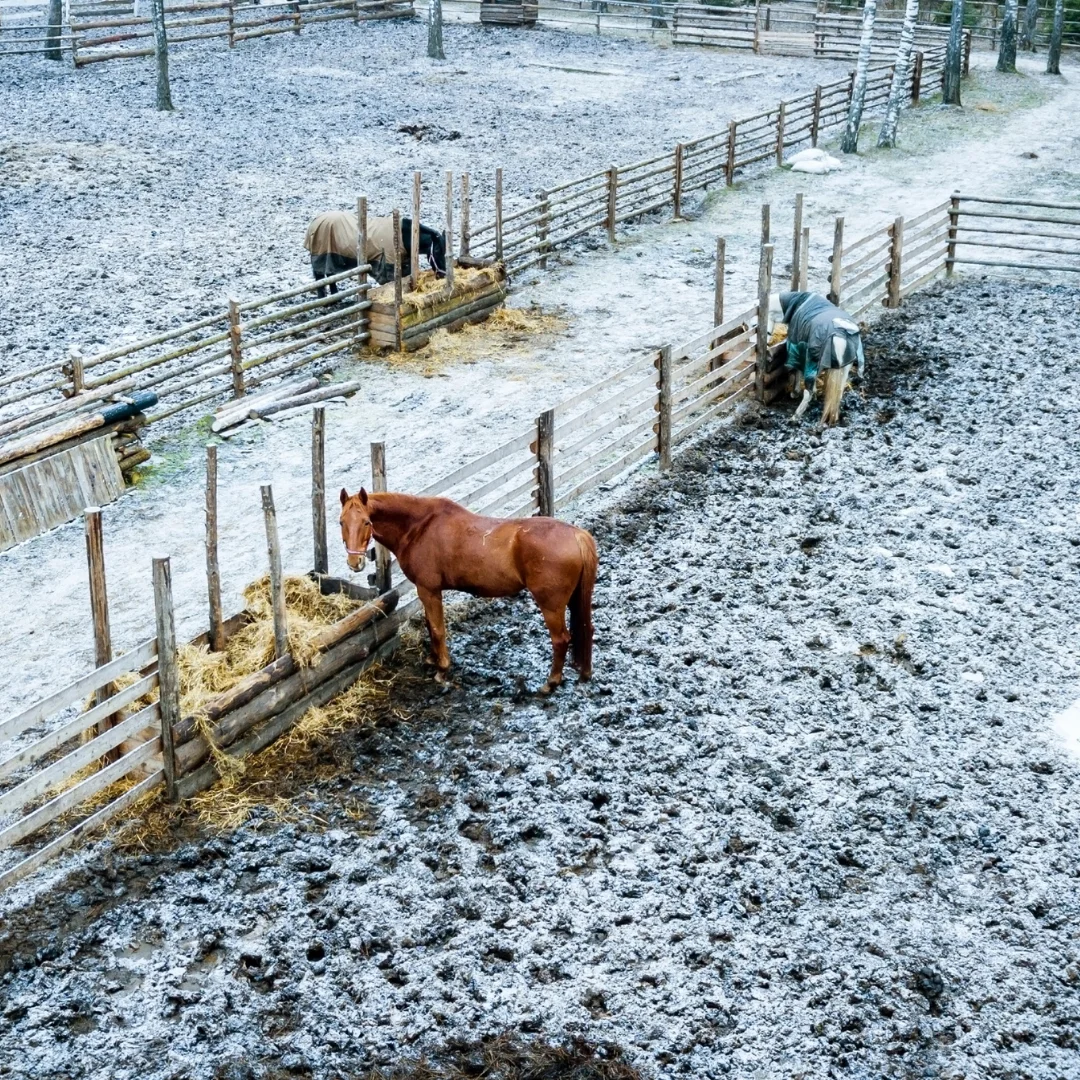
Winter Creates Challenges for Both Horse and Rider
As we all know, winter can mean more issues for horses and their riders. While staying warm at the barn is an obvious struggle, the less visible issues of the colder months often have a much greater impact on your horse’s overall health. In the Mid-South, where temperatures can swing dramatically and moisture levels fluctuate, care in the winter becomes even more important. With the right winter horse care, however, your horse can remain comfortable, active, and healthy all winter long.
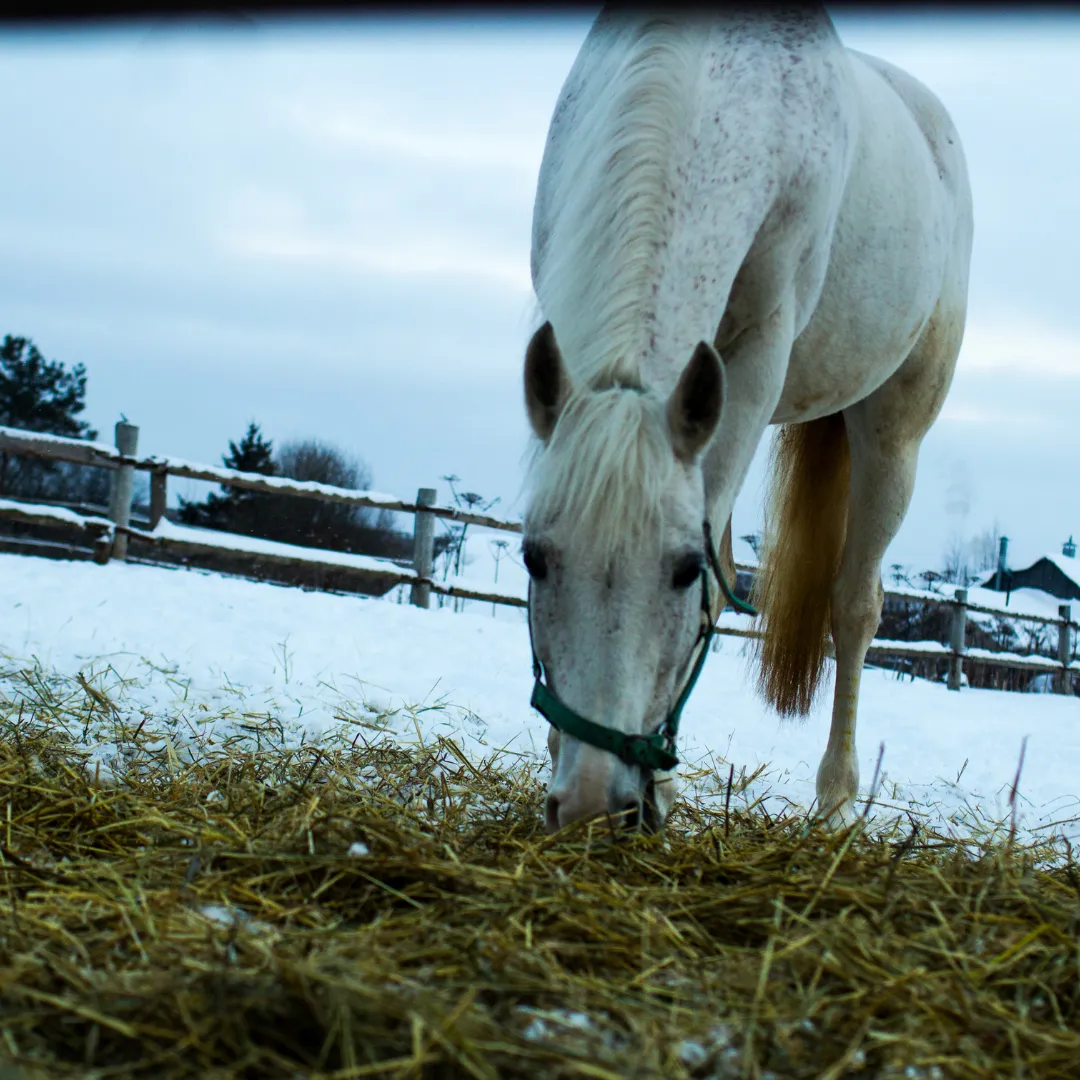
Smart Equine Nutrition Plans for Fall and Winter
As the temperatures drop and the pastures turn dormant, horse owners across the Mid-South face the seasonal challenge of adjusting their feeding programs. Unlike the lush spring and summer months, cooler weather means less fresh forage, lower natural nutrition, and increased caloric needs to maintain body condition and energy. Feeding your horse in the fall and winter requires careful balance especially in regions like ours where humidity and weather fluctuations make hay storage a challenge.
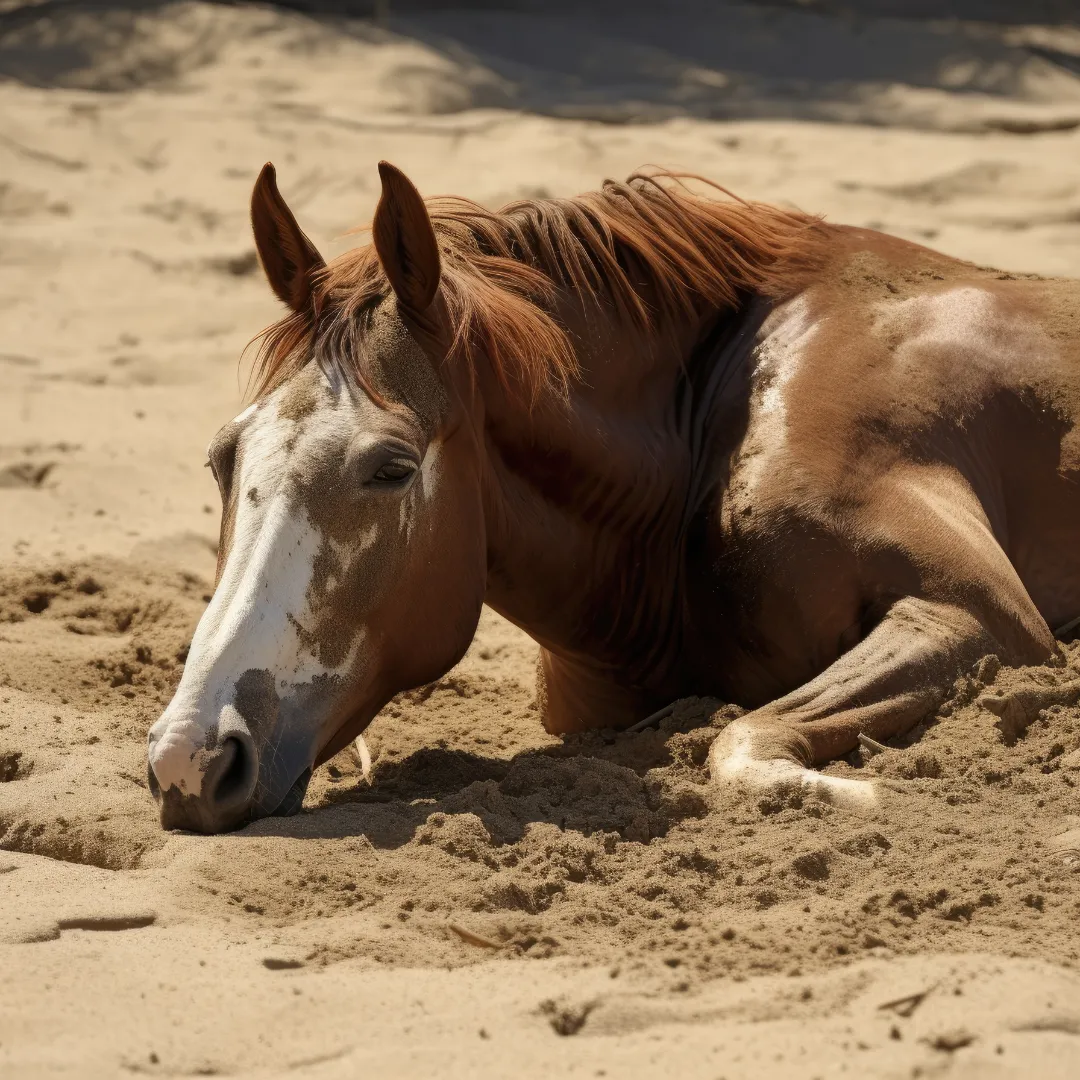
Horses and Seasonal Colic: Prevention, Symptoms, and Emergency Care
As the season changes from summer to fall, horse owners may notice differences in their animals’ appetite, behavior, and overall health. One of the most common and potentially serious issues during this transition is seasonal or barometer colic. Understanding how to prevent colic, recognize the symptoms, and respond in an emergency can make all the difference in protecting your horse’s health.
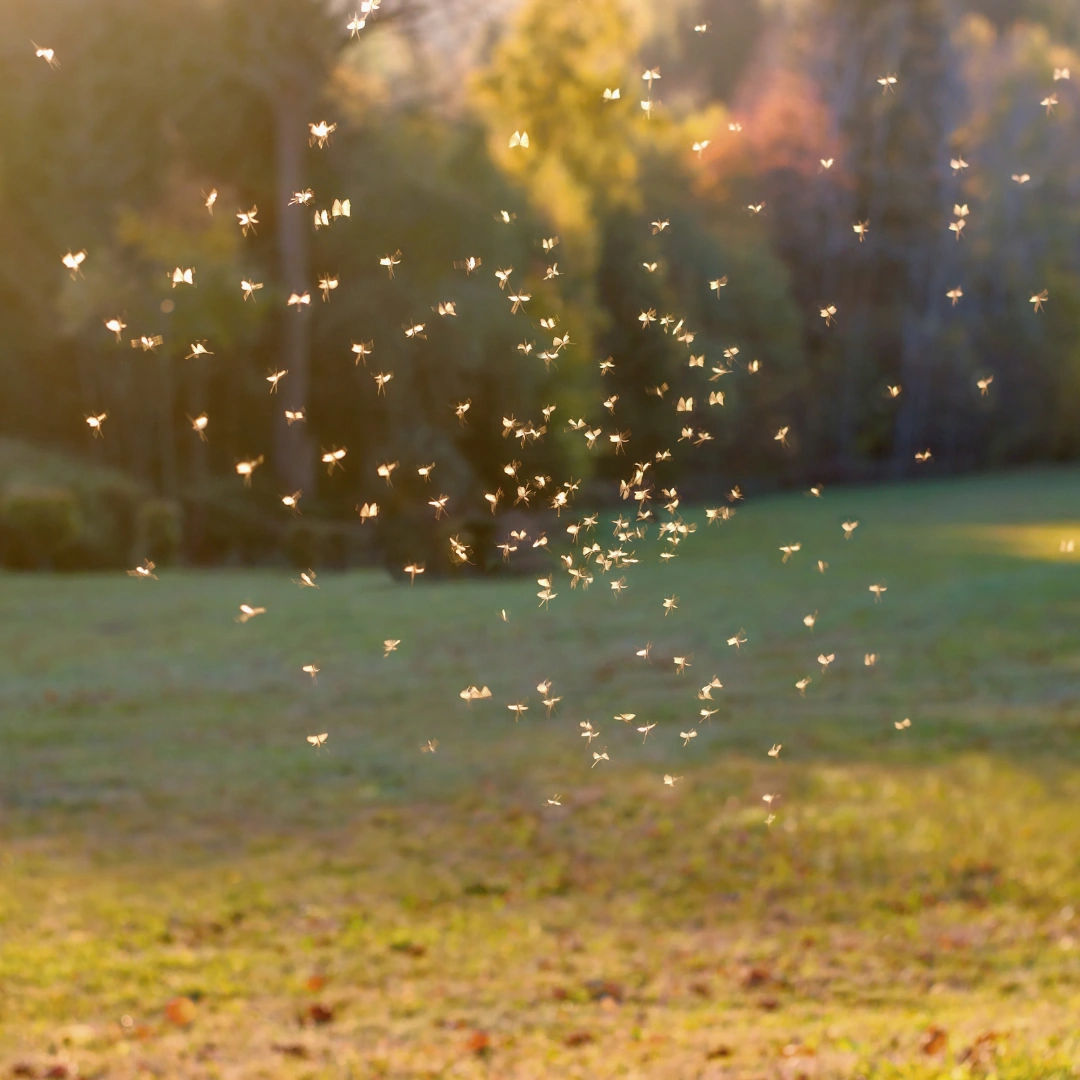
How to Protect Your Horse from Insects
Have you ever watched your horse twitch, stomp, or swish their tail from frustration? They are likely being bothered by flies or other flying insects. We all know insects can be a nuisance, but did you know they can also cause a serious health problem, especially for horses? Understanding the impact that insects and other bugs can have on horses can help owners keep them safe from disease and irritation.
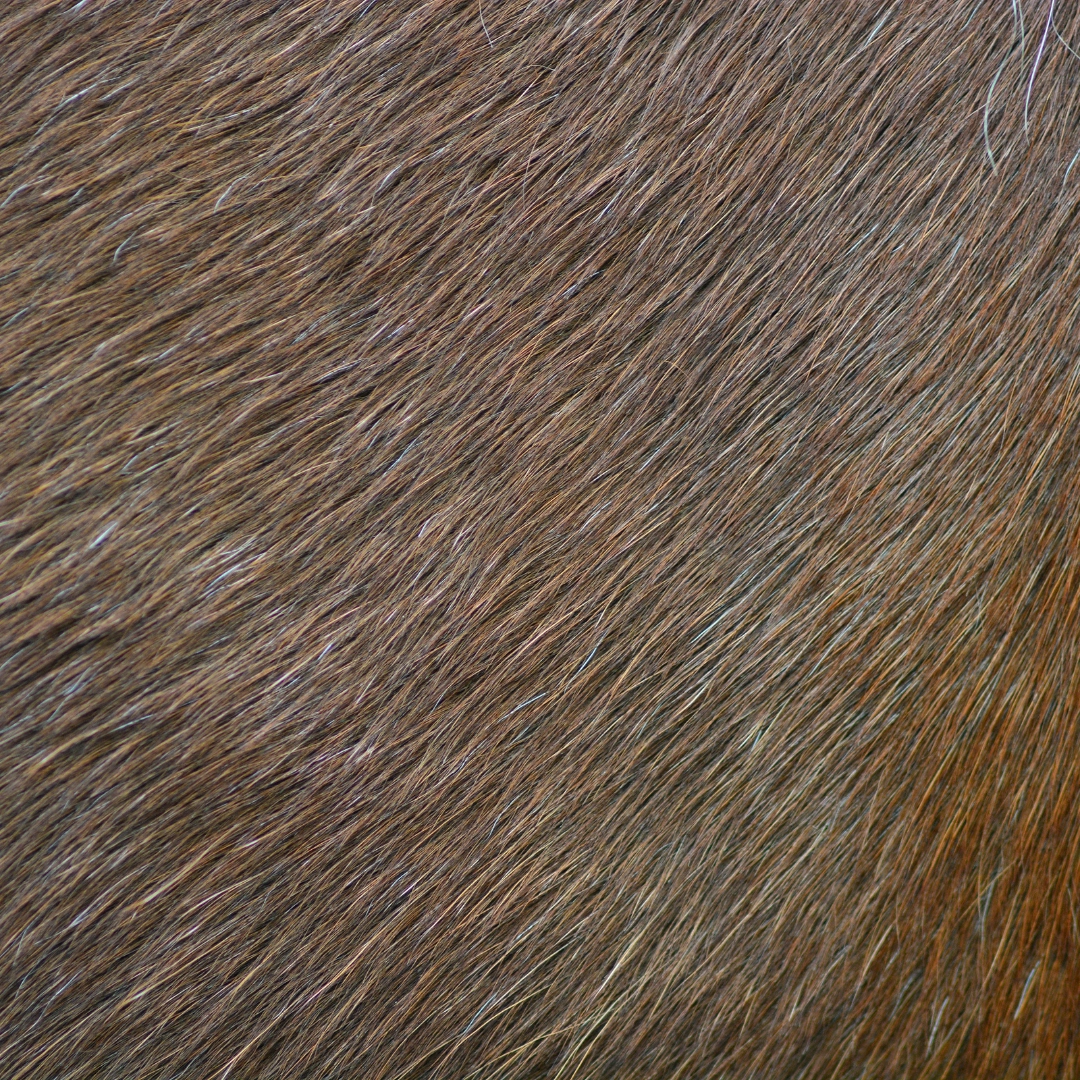
Common Equine Skin Conditions
Skin conditions can impact any horse, presenting various challenges for them and their owners. However, equine skin problems are typically manageable and often preventable with proper attention and care.
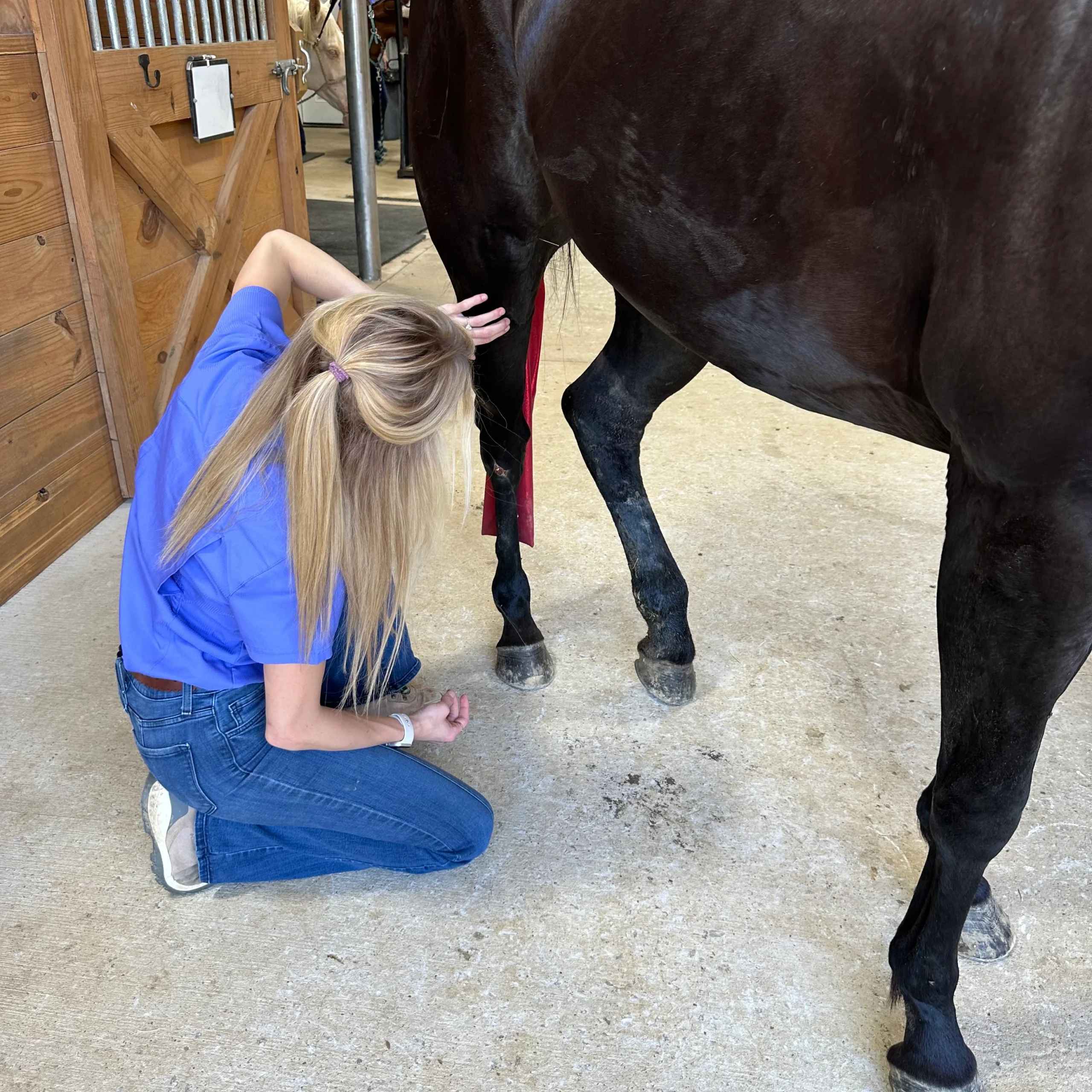
Preventative Care for Equine Athletes
Equine athletes face a variety of challenges from the demanding physical exertion required in their disciplines. Just like human athletes, horses are susceptible to a range of strains and injuries when subjected to repetitive movements, high levels of performance based showing. Because of this, implementing preventive care for equine performance athletes is crucial to maintain their peak levels and prevent potential injuries.
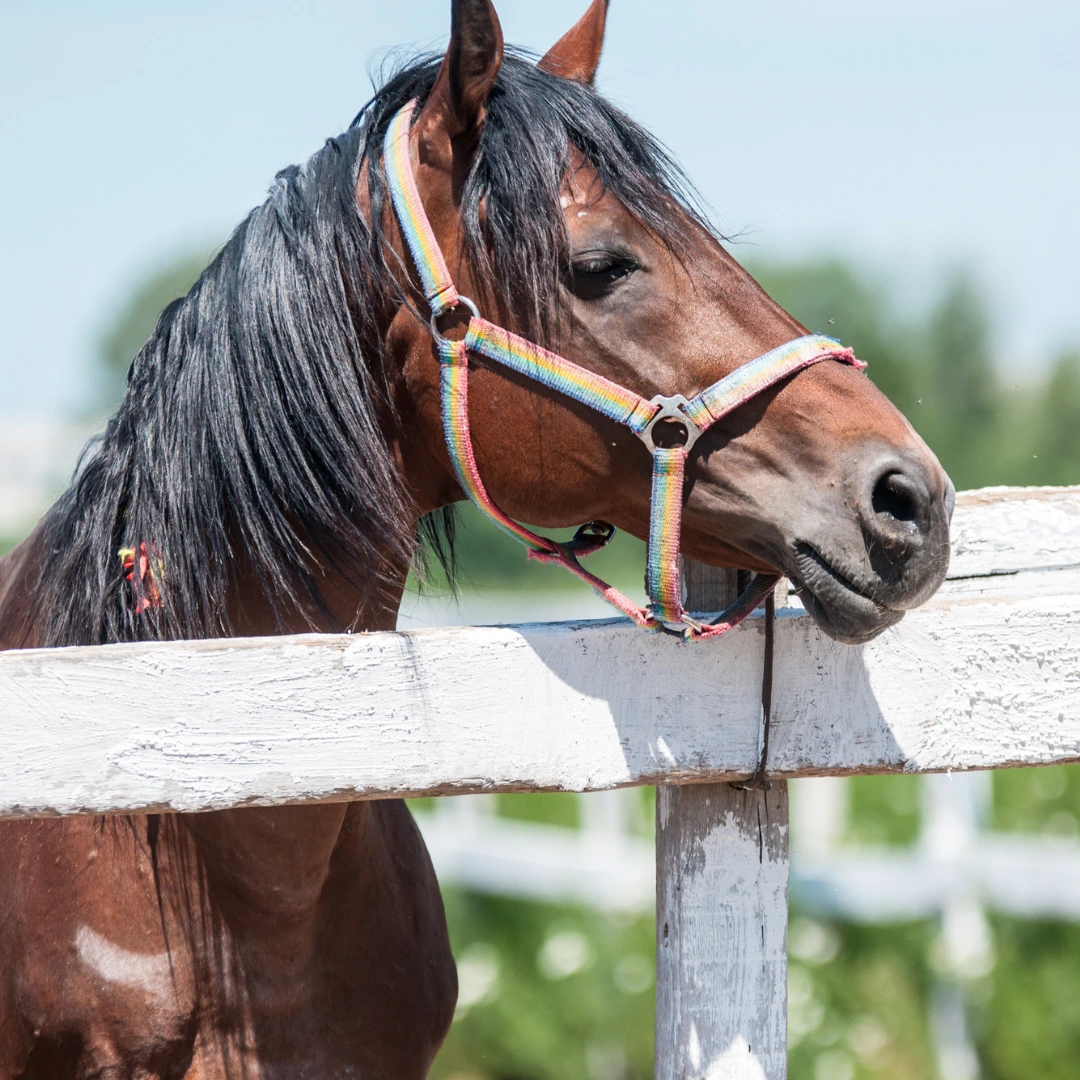
Choosing the Best Fence For Your Horse
When it comes to ensuring the safety and well-being of your horses, one of the most vital decisions you’ll face is selecting the correct type of fencing. No one wants to make an emergency phone call because of an injury due to fencing. The perfect fence keeps your horses secure, protects them from injuries, and allows them to move around with room to exercise and graze. If you search for horse fences, you’ll find a wide array of options. With so many choices available, it can be challenging to determine the ideal horse fence for your specific needs. In this comprehensive guide, we’ll explore the various types of fences for horses, offering valuable insights to help you decide which one is the best choice for your equine companions.
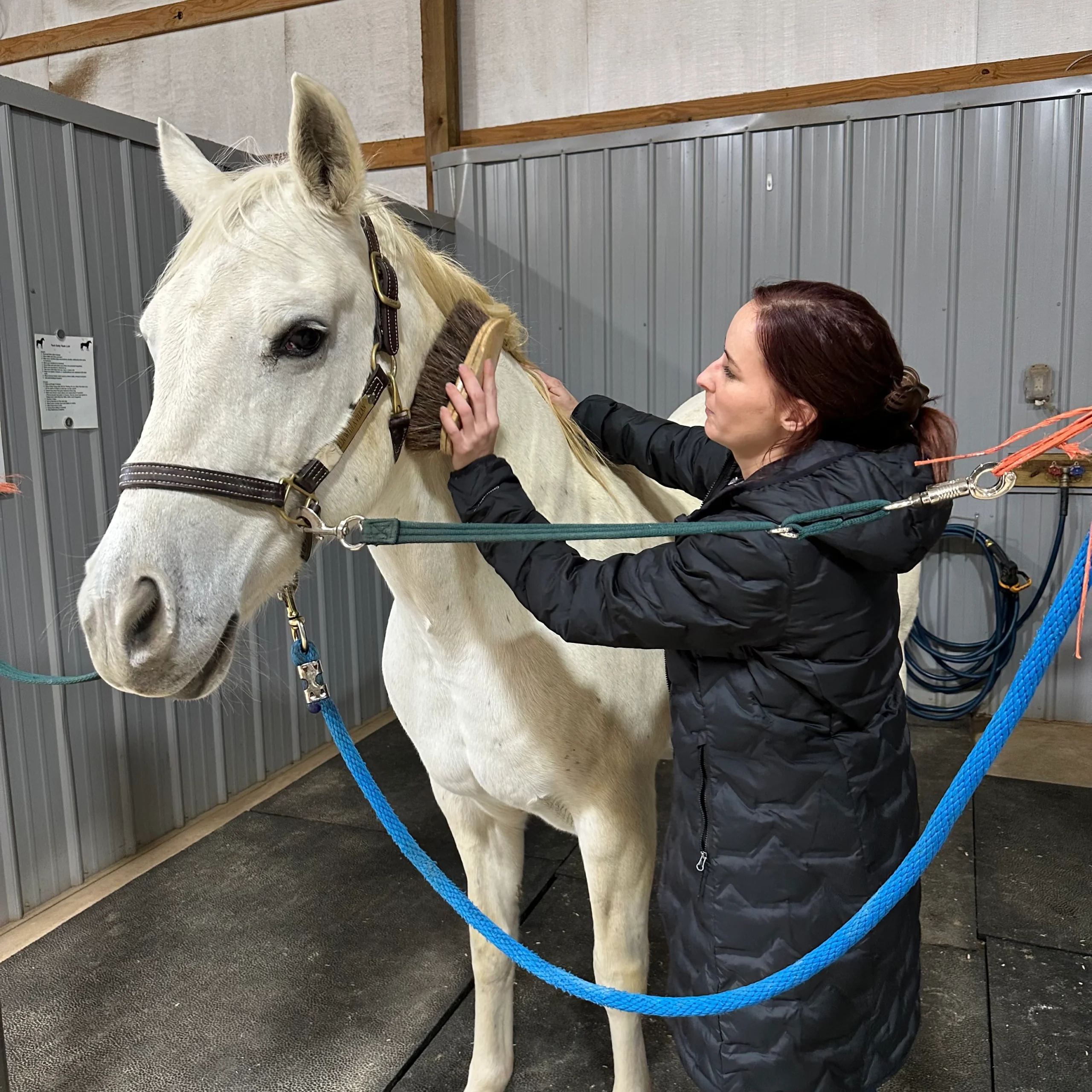
Five Winter Grooming Tips for a Healthy, Shiny Coat
As the winter cold sets in, it’s important to know essential grooming tips to keep your horse happy and healthy. Once winter arrives, maintaining your horse’s grooming routine becomes crucial for several reasons. One main reason is that the winter coat may become thicker and more challenging to manage. However, a well-maintained coat can help keep your horse healthy and comfortable during the colder months. Here are some of Full Circle Equine’s best winter grooming tips to ensure your horse’s coat stays healthy, shiny, and comfortable throughout the season.
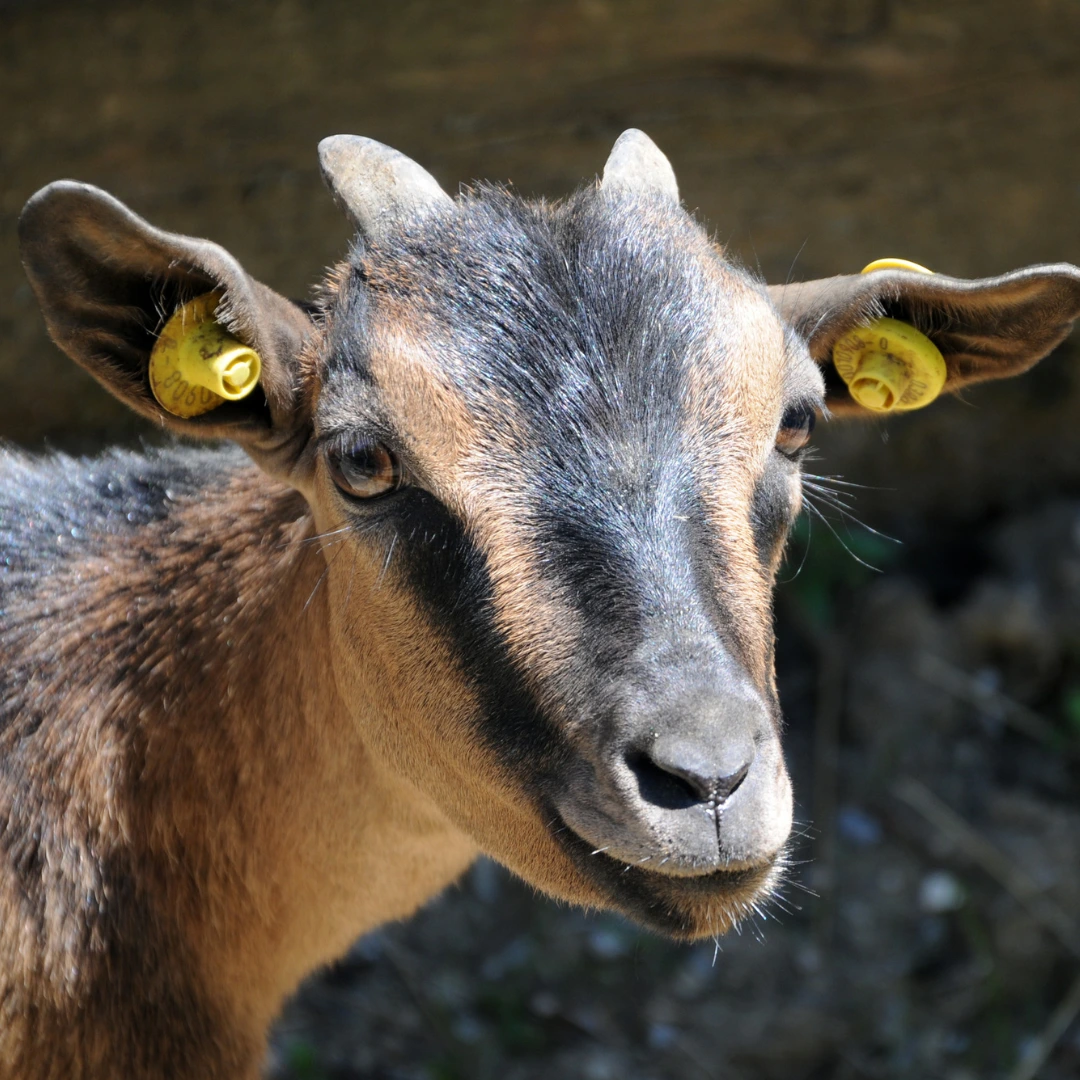
Beyond Horses at Full Circle Equine
At Full Circle Equine, our mission is to go beyond simply providing exceptional veterinary care for horses. We understand that the farm or ranch is diverse and home to various animals, each requiring expert care to ensure their health and well-being. That’s why we take pride in offering veterinary care not just for horses but also for donkeys and goats. From routine wellness exams to addressing complex health concerns, our dedicated team is fully equipped to care for your farm friends.
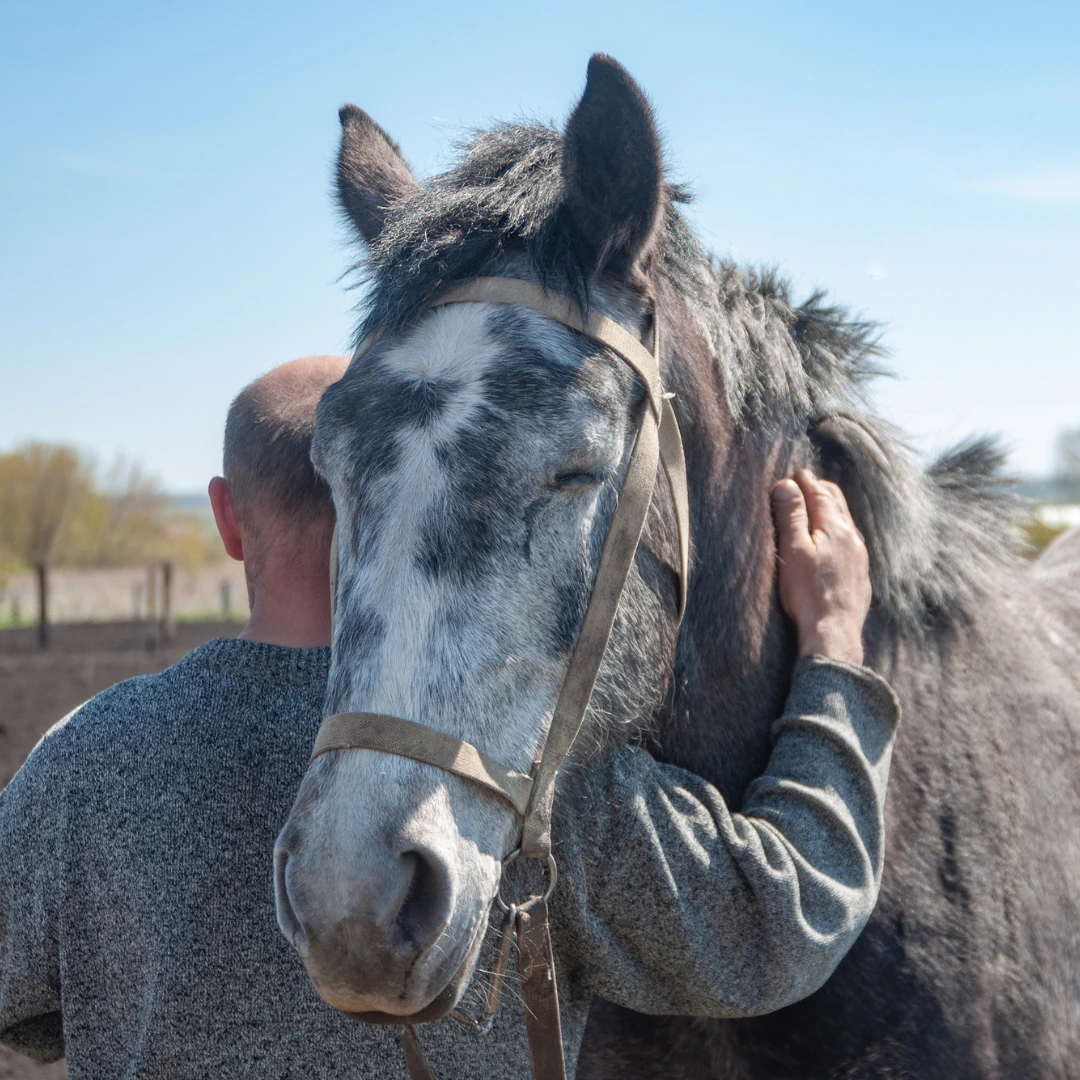
Essential Tips for Caring for a Senior Horse
As horses age, their needs change significantly, requiring special care to keep them comfortable, happy, and healthy. Senior horses may face specific dietary requirements, joint issues, and other health vulnerabilities.
Full Circle Equine can help provide senior horse care by offering tailored nutritional support, regular veterinary checkups, and customized exercise programs. We ensure your horse receives the necessary attention to enhance their quality of life in their golden years.
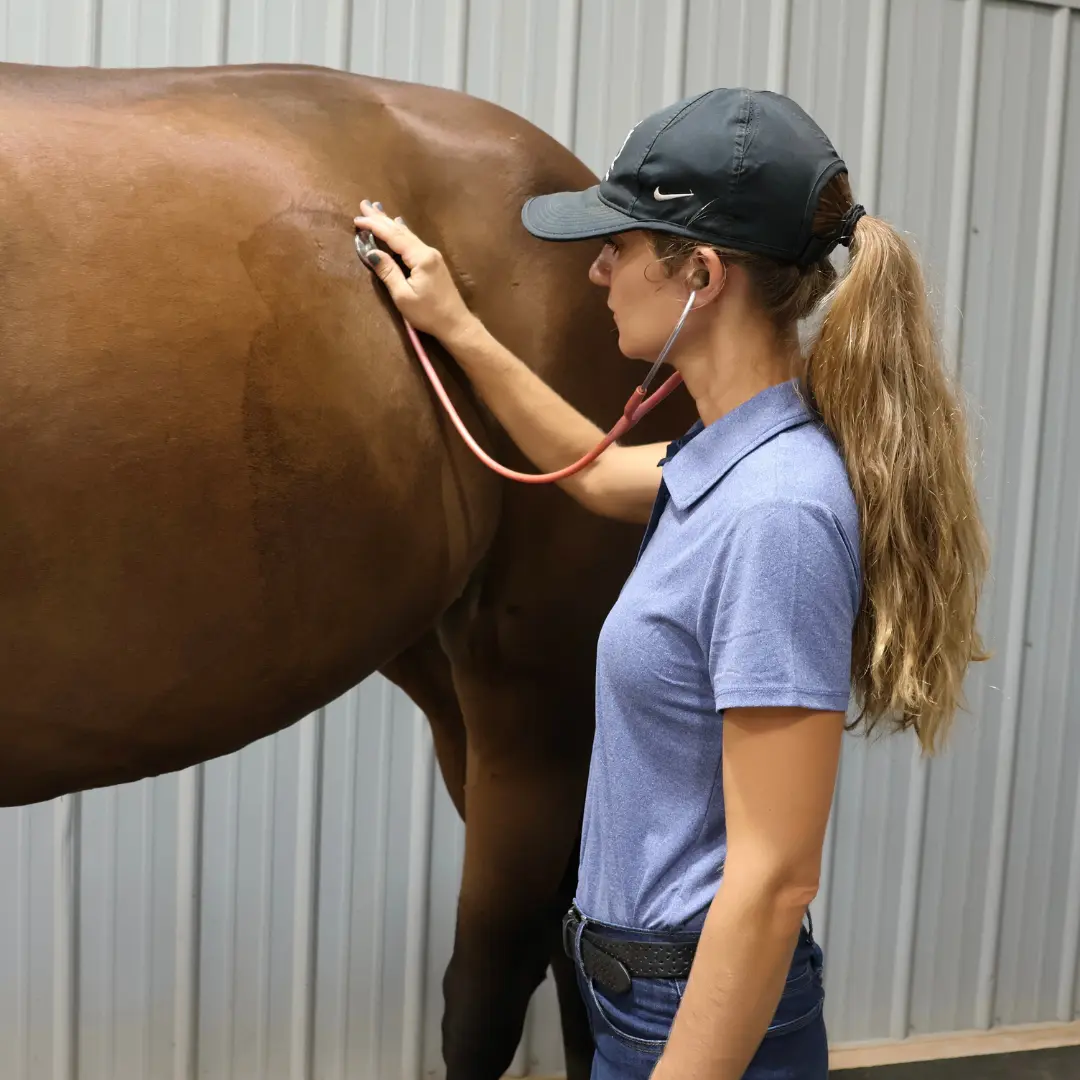
How Often Should a Horse See a Vet?
Caring for a horse is a significant responsibility that involves paying close attention to various aspects of their health and well-being. One critical aspect of this care is ensuring regular visits to an equine veterinarian, such as Full Circle Equine. But how often should a horse see a vet? The answer depends on several factors, including the horse’s health, age, working status, and show schedule. Regular veterinary check-ups are vital to ensure the overall health and well-being of the horse, as well as to address any specific health concerns that may arise.
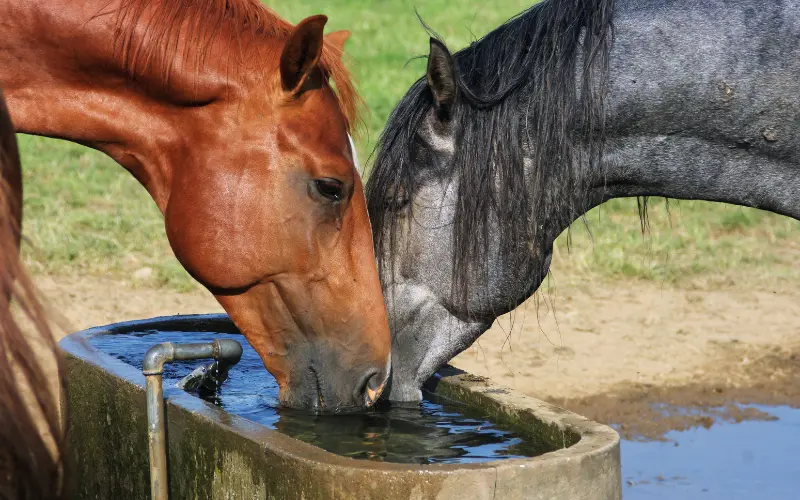
How Much Water Does a Horse Need to Consume Daily?
Late summer is a time for horses to bask in the outdoors which can include increased temperatures and activity levels. The risk of dehydration looms, making it crucial to ensure your equine friends stay hydrated for their health and well-being. Understanding their water needs and the best ways to meet them is key to keeping them happy and healthy throughout the season.
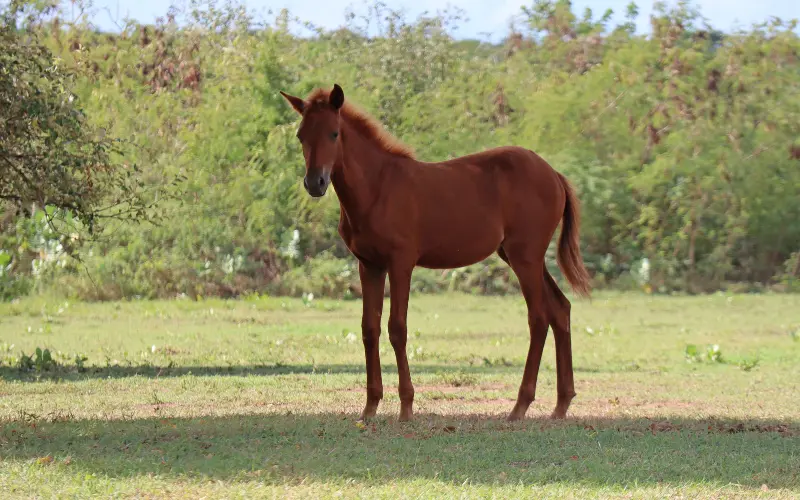
Keeping Your Horse Cool and Safe in Midsouth Heat
As the temperatures soar in Memphis, it is essential to know how to keep horses cool in summer as part of summer horse care. At Full Circle Equine, we understand the unique challenges the summer heat and unpredictable summer storms present. Therefore, we have compiled some essential tips to help you with keeping your horses cool, comfortable, and healthy during these sweltering days.
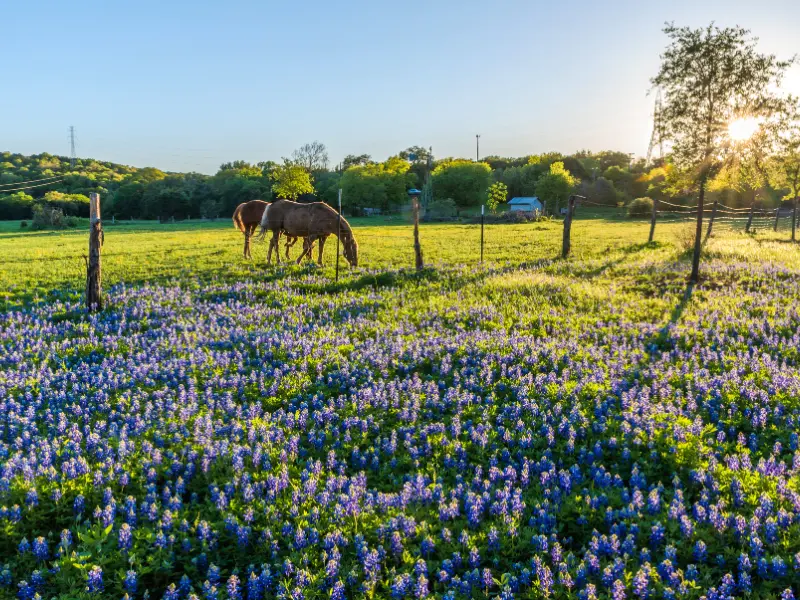
Tips on Preventing Founder on Spring Grass
Spring brings about a sense of renewal and growth, but for horse owners, it also signals the return of lush green pastures. While this may seem like a delight for our equine friends, it can pose a significant risk. Founder, also known as laminitis, is a painful and potentially debilitating condition that occurs when the sensitive laminae within the hoof become inflamed, often due to overconsumption of lush spring grass. Preventing founder in horses is crucial to keep them healthy.
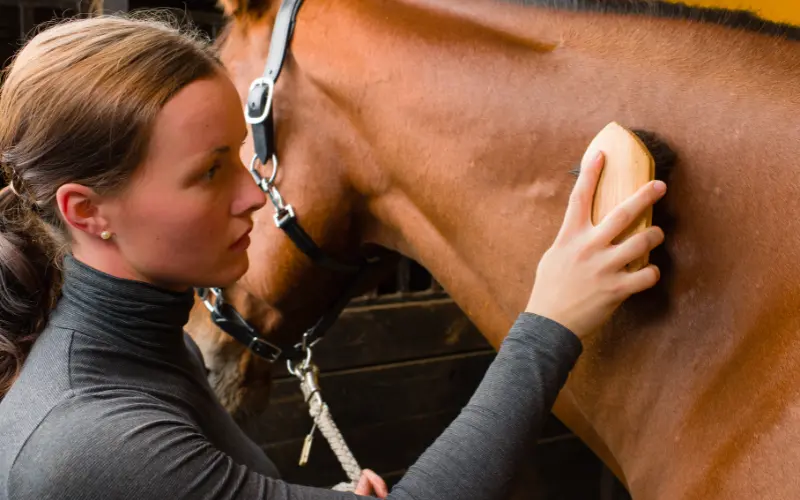
The Basics of Horse Grooming
Whether you are a seasoned equestrian or a newcomer to the horse world, it is essential to understand the basics of horse grooming. Grooming is about keeping your horse looking beautiful, maintaining their health, and building a strong bond between horse and rider. At Full Circle Equine, we believe in this philosophy. This guide will walk you through the grooming steps, covering everything from brushing to bathing and beyond.
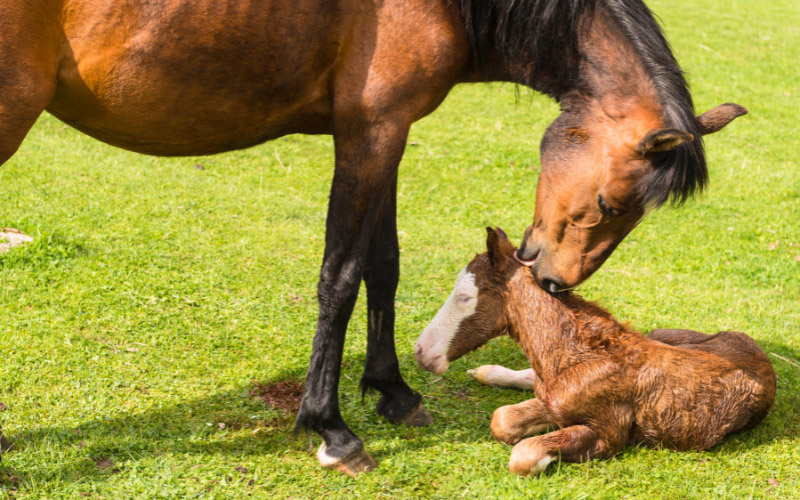
How to Recognize Foaling Problems
Bringing new life into the world is an awe-inspiring moment, especially in the equine world where birth is a testament to the miracle of nature. However, foaling can also be a time of great concern for horse owners, as complications can arise that may endanger the health of the mare and foal. Knowing how to recognize foaling problems is crucial for ensuring safe delivery and the well-being of both mare and foal.
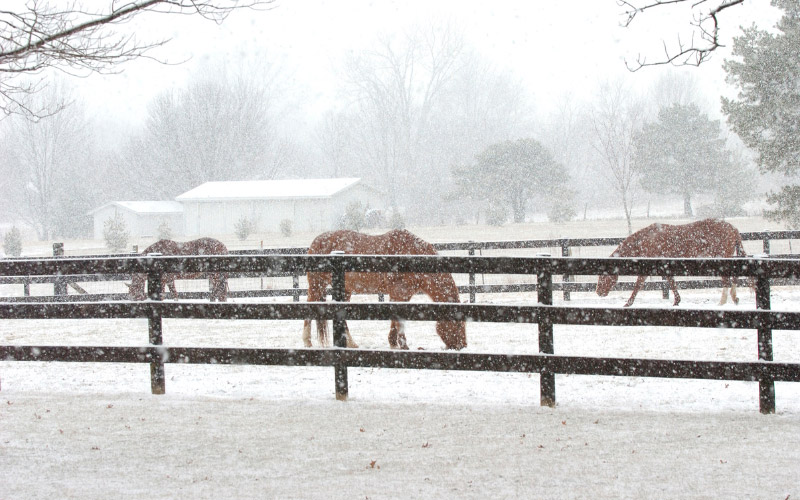
Is Your Horse Getting Enough Water in the Winter?
At Full Circle Equine, our team is dedicated to ensuring the health and well-being of horses. We understand horses are more prone to dehydration during winter as they drink less water when the temperatures drop. This can lead to serious health risks such as colic, impaction, and urinary stones. Knowing how to tell if your horse is dehydrated is crucial, especially when temperatures drop. As passionate horse enthusiasts, we aim to educate horse owners about the importance of adequate water intake during winter to keep their horses healthy and happy.
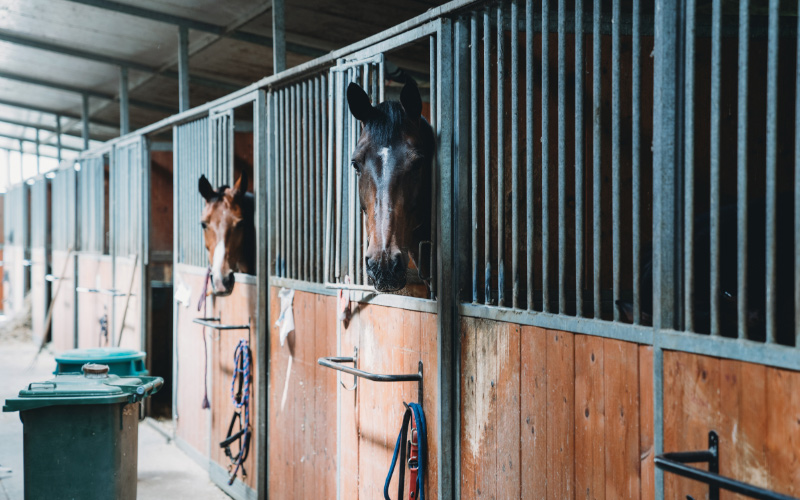
Should Horses Have Shelter in the Winter?
As the weather gets colder, horse owners need to take extra care of their animals. This involves making sure that their horses are well-protected from the harsh winter conditions in horse shelters. To achieve this, providing adequate shelter is essential.
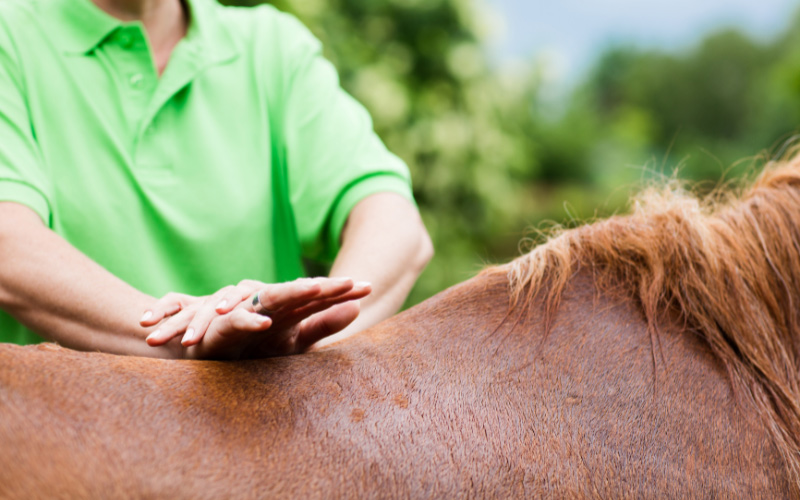
Equine Chiropractic Care
When you think of chiropractic care, you assume it is primarily for treating conditions affecting the human musculoskeletal system. However, studies show that chiropractic care has remarkable benefits for horses’ health, especially in equine performance horse care. Horses need exercise to keep them active and improve their well-being. A performance horse should be in top-notch condition and needs specialty performance care. Your horse’s musculoskeletal system must be flexible and in good condition for training to be effective.

The Vital Role of Annual Vaccines for Horses
Horses have been companions, partners, and sources of joy for centuries. Their strength, elegance, and grace have captured our hearts, making them integral to many people’s lives. Just as we prioritize our health with regular check-ups and vaccinations, it is equally essential to ensure the well-being of our equine friends. Annual vaccines play a vital role in maintaining the health and vitality of horses. Equine vaccinations also help prevent a range of potentially debilitating diseases and even death.
Beat The Heat!
Do you have any tips to beat the heat and keep my horse healthy this summer?
1-2-3’s of Foals
So your little foal has hit the ground! Your new addition should be bright, alert, and have a suckle reflex within the first five to ten minutes after breaking through the fetal membranes.
EPM
Question: I purchased a mare with an unknown history about 3-4 years ago. We recently moved to a new barn, and she has been tripping and standing funny. She also has begun to lose weight. One of the other boarders mentioned that her horse had shown similar signs, and was diagnosed with EPM. What is EPM and how is it diagnosed? What treatments are available? Does it recur even after treatment? Thank you!
Parasites
Posted on March 10, 2016.
Question: I just moved my horse to a new barn, and the barn manager asked me about his deworming history. When I said I dewormed regularly every 8 weeks, she replied that it may be unnecessary to deworm him that frequently, and that several owners preferred to have their horse’s manure checked before deworming. What do you know about this?
Colic
Question: We’ve had several horses colic at my barn recently. What causes this and is there anything I can do to prevent my gelding from getting it?
The Geriatric Horse
Question: I have an 18 year old gelding that has generally been an easy keeper but just recently began losing weight. With winter approaching I really want to do all I can do to help him, what are your recommendations?
Pregnant Mare
Question: Last spring I bred my favorite riding mare and am starting to get worried as she gets closer to foaling. I’ve never had a pregnant mare before and I don’t want to do anything wrong! Do you have any suggestions for what I can do to prepare and a sort of timeline for what should happen as she starts to foal?
Emergency Preparedness
Question: I feel like my gelding is always accident prone! He is constantly injuring himself, regardless of whether he is in a stall or out in the pasture, and I think I’m seeing my vet more than my husband! What tips do you have for handling emergency injuries? Do I always need to call my veterinarian? Thank you!
Common Emergencies Part 2
- CHOKE. Quick, who knows the Heimlich maneuver?! Just kidding. Horse choke is not the same scenario we usually think of when a person has food lodged in the airway, because it is caused by a bolus of food lodged in the esophagus.
Common Emergencies Part 1
- COLIC. Yes, I think that this one has to be at the top of the list. It is one of the few words that strikes fear in the hearts of all horsemen, and rightfully so, as it is the leading cause of death in horses. What is colic you ask? It is a broad term that describes abdominal discomfort.
Pigeon Fever
Pigeon Fever in the Mid-South
Q: I have heard some horse friends in Texas talking about “Pigeon Fever”. What is it and do we need to be concerned about our horses in the Mid-south getting it?
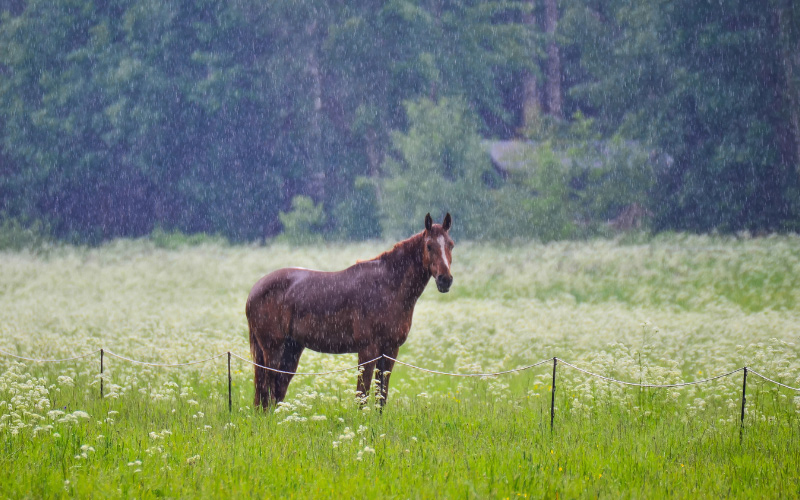
Equine Skin & Rain Rot
I have been battling with rain rot in my Thoroughbred mare all summer. What exactly causes “rain rot” and how is it best treated? Could she have skin allergies? Let Full Circle Equine give you the full story!